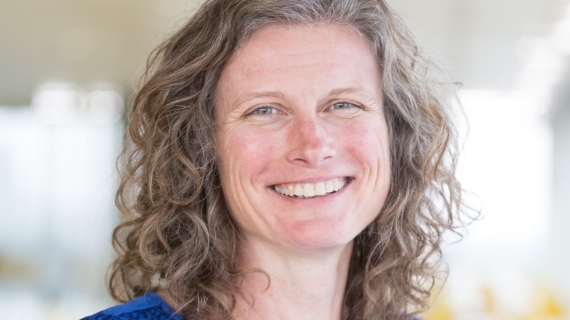Egija Zaura
Towards understanding of a healthy oral ecosystem: the role of oral microbiome

- Department of Preventive Dentistry, Department of Cariology and Department of Pediatric Dentistry, Academic Centre for Dentistry Amsterdam (ACTA), Vrije Universiteit Amsterdam & University of Amsterdam, the Netherlands
- University Research Chair Professor in Oral Microbial Ecology at the Vrije Universiteit Amsterdam. She is the head of the Departments of Preventive Dentistry, Cariology and Pediatric Dentistry at the Academic Centre for Dentistry Amsterdam (ACTA), VU Amsterdam and University of Amsterdam, the Netherlands. She obtained her Dental degree in 1995 at Karolinska Institute, Sweden and in Riga Stradins University, Latvia. After graduation, she combined her work in the dental clinic in Riga with accomplishing a degree in General Dentistry at Riga Stradins University, in 1997. In 2002 she acquired a PhD in Preventive Dentistry, cum laude, at ACTA, the Netherlands.
- Her research topics span from biofilm models and clinical studies to advanced molecular technologies in oral microbial diagnostics and complex sequencing data analyses. Her current principal interests lay on oral microbial ecology at health and disease, and translating this fundamental knowledge to the clinical practice.
Nationality: Netherlands
Scientific areas: Innovations in dentistry
19 of november, from 09h00 until 10h10
Auditorium D
Conference summary
Oral microbial community at health contains hundreds of microbial species, including bacteria, Archaea, viruses, protozoa and fungi. Compared to other niches in the human body, oral microbiome, once established, remains remarkably stable.
The symbiotic co-evolution has led to a highly efficient mutualism between the host and its (oral) microbiome. While host provides a stable, nutrient-rich habitat for its microbes, a healthy oral microbiome fine-tunes and trains the immune system, prevents the establishment of exogenous microorganisms in the oral cavity and maintains a healthy gastrointestinal and cardiovascular system of the host.
Oral cavity is a complex ecosystem, where multiple host and microbial factors interact in maintaining a healthy balance. Once this balance is lost, as during frequent sugar intake or prolonged neglect of oral hygiene, dental caries or periodontal diseases may develop.
This however does not occur in all hosts. Both, genetic and behavioral factors of the host are shaping the oral ecosystem and its microbiome. Recently we described five oral ecological types (ecotypes) among healthy Dutch adults. In this presentation the potential clinical significance of these ecotypes in personalized dentistry approaches will be discussed.